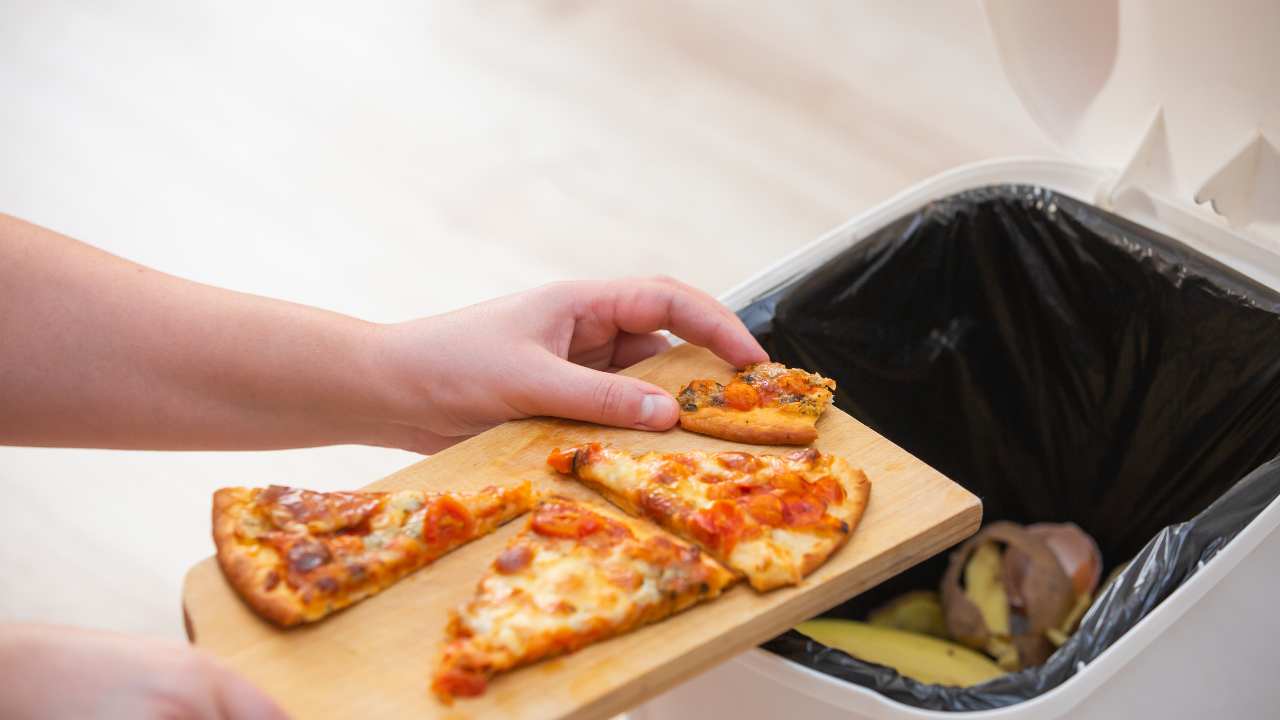Can You Compost Man Made Junk Food?
Composting man-made junk food is generally not recommended. These foods often contain preservatives that do not break down easily.
Embracing a green lifestyle encompasses waste management, and composting has become a cornerstone practice.
While nature thrives on recycling organic matter, the introduction of man-made junk food into composting systems poses challenges.
Such foods, laden with artificial additives and lacking in essential nutrients, degrade the quality of compost.
This nutrient-poor compost, in turn, can affect soil health and plant growth adversely.
Home composters and garden enthusiasts should be cautious; the goal is to foster a rich, life-supporting soil ecosystem.
Man-made junk food, unfortunately, doesn’t contribute to this objective.
Thus, understanding the implications of including processed snacks and treats in your compost is crucial for maintaining the integrity of your eco-friendly efforts.
The Concept Of Compostability
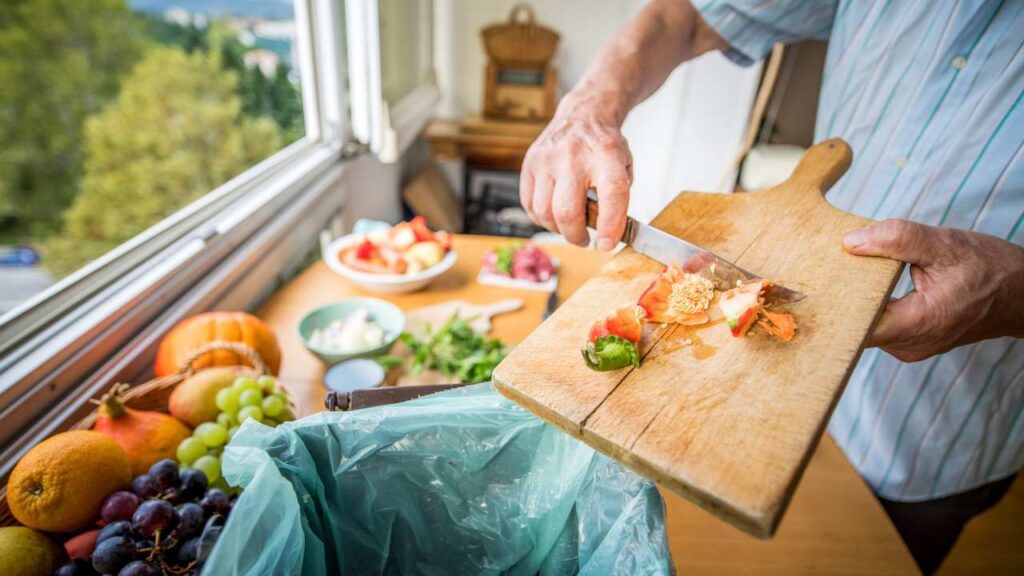
Can we turn man-made junk food into compost, returning it to the earth from which it came?
The idea turns on understanding the core of compostability.
Composting means using biological processes to break down materials.
It creates nutrient-rich soil. The process needs materials that can decompose.
Will synthetic materials find their place in the compost bin? Let’s dive deeper.
Defining Composting
Composting is a nature’s recycling method.
It uses air, water, and living organisms.
These convert waste into healthy soil.
The basic requirement? The items must break down in the environment.
Not everything fits this standard.
Natural Vs. Synthetic Materials
Natural materials, like fruits and vegetables, decompose easily.
They are compost heroes. They turn into soil fast.
Synthetic materials, on the other hand, are different.
Plastics and chemicals are in many junk foods.
They don’t break down like an apple core.
They can pollute the compost.
| Type of Material | Compostable? |
|---|---|
| Banana Peels | Yes |
| Chip Bags | No |
| Cereal Boxes | Often |
| Plastic Wrappers | No |
Think before you toss junk food waste into your compost bin.
Check the packaging for labels like “biodegradable” or “compostable”.
They tell you if an item’s okay for compost.
Junk Food Composition
Ever wondered what hides inside your favorite snack?
The shiny wrappers of junk food not only hide the tasty treats but also a mix of ingredients that raise the question: Can we compost them?
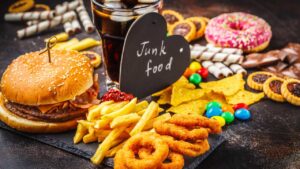
In this deep dive, we’ll peel back those layers to explore the fundamentals of junk food composition.
Let’s break down what’s really going into the landfill and what could potentially nourish our gardens.
Ingredients In Common Junk Foods
Junk food is notorious for its long, often unpronounceable list of ingredients.
We find a range of substances, from natural to synthetic, in our everyday snacks.
- Refined Sugars: Sweetness that tempts our taste buds.
- Artificial Flavors: Chemicals that mimic natural tastes.
- Preservatives: Substances to keep food fresh longer.
- Colors: Dyes that enhance visual appeal.
- Trans Fats: Oils that lengthen shelf life.
Biodegradability Of Processed Foods
Not all food scraps hug the earth back.
With processed foods, their breakdown is not as straightforward as that of an apple core.
- Simplicity Matters: The simpler the food, the better it returns to the earth.
- Synthetic Additives: These can disrupt natural decomposition.
- Time Factor: Junk foods take longer to break down due to preservatives.
Impacts Of Junk Food On Compost Quality
Many people wonder if junk food can go into compost piles.
It’s crucial to know how these foods change compost quality.
Junk foods might not break down as good, healthy scraps do.
Nutrient Content In Compost
Junk food adds fewer nutrients to compost than natural food waste. Why?
There’s less organic matter in processed snacks.
Real fruits and veggie scraps are better.
Healthy leftovers improve soil more than man-made snacks.
Let’s see what junk food does to compost:
- Low in nitrogen: Compost needs nitrogen. Fruits and veggies have it, but junk food has less.
- High in salt: Too much salt harms the compost. It impacts the water balance in the soil.
- Added chemicals: Preservatives and colorings aren’t great for the compost pile.
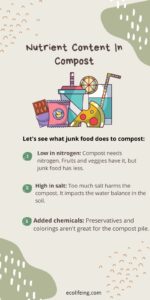
Attracting Pests And Animals
Rats, raccoons, and insects love junk food.
If you add man-made snacks to compost, you might get unwanted guests. Here are the risks:
| Type of Junk Food | Risk Factor |
|---|---|
| Chips | High oil content attracts rodents. |
| Candy | Sugars can cause ant infestations. |
| Baked Goods | Can mold quickly and attract flies. |
To prevent pests:
- Bury junk food scraps deep inside the compost.
- Use a compost bin with a lid.
- Balance junk food with more greens and browns.
Remember, the goal is to keep compost healthy and nutrient-rich for the garden.
Choose what you compost wisely!
Challenges In Composting Man-made Foods
The compost bin is a hero’s tool to our planet.
Yet, not all villainous waste breaks down easily within its confines.
We face challenges in composting man-made foods.
These foods do not always return to the earth gracefully.
Preservatives And Their Effects
Curbing decay is the preservative’s very purpose.
Preservatives extend shelf life but hinder compost progress.
When tossed into a compost bin, they continue to resist breakdown, impacting the microbial activity crucial for composting.
- Slow Decomposition: Preservatives can slow down the degradation of organic materials.
- Chemical Impact: Potentially harmful substances can seep into the compost, affecting soil quality.
- Microbial Growth: The health of beneficial bacteria and fungi may be impaired.
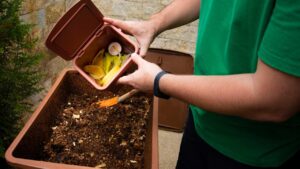
Breakdown Time Variance
The diversity in man-made edibles means breakdown times vary.
Unlike an apple core or lettuce leaf, processed foods often lag in the race to decomposition.
| Food Item | Decomposition Time |
|---|---|
| Natural Fruit Peel | 2 weeks |
| Processed Snack | Months to years |
Not just time, but the nutrient profile after breakdown differs.
Natural items enrich soils, whereas man-made foods might not offer the same benefits.
- Assess the food: Judge if it’s ideal for composting.
- Consider the additives: Foods with fewer additives may break down more efficiently.
- Monitor your compost: Some man-made foods can be included but watch for any issues.
Alternative Disposal And Reduction Methods
Navigating the disposal of man-made junk food requires smart strategies.
Beyond tossing items into the trash, alternative methods can help reduce the environmental impact.
Discover these effective ways to manage junk food waste and packaging.
Reducing Junk Food Waste
Limiting consumption is key. Here are simple steps:
- Plan meals to avoid impulse buys.
- Buy in bulk to reduce packaging.
- Choose healthier snacks that come with less packaging.
Recycling Packaging
Packaging often finds its way into landfills. Recycle by:
| Material | Action |
|---|---|
| Plastic wrappers | Check local facilities for special programs. |
| Cardboard boxes | Flatten and place in recycling bins. |
| Metal cans | Rinse and recycle with metals. |
Community Composting Initiatives
Community composting is a green approach. Join
- Look for local composting programs.
- Donate edible food waste.
- Turn junk food scraps into compost for gardens.
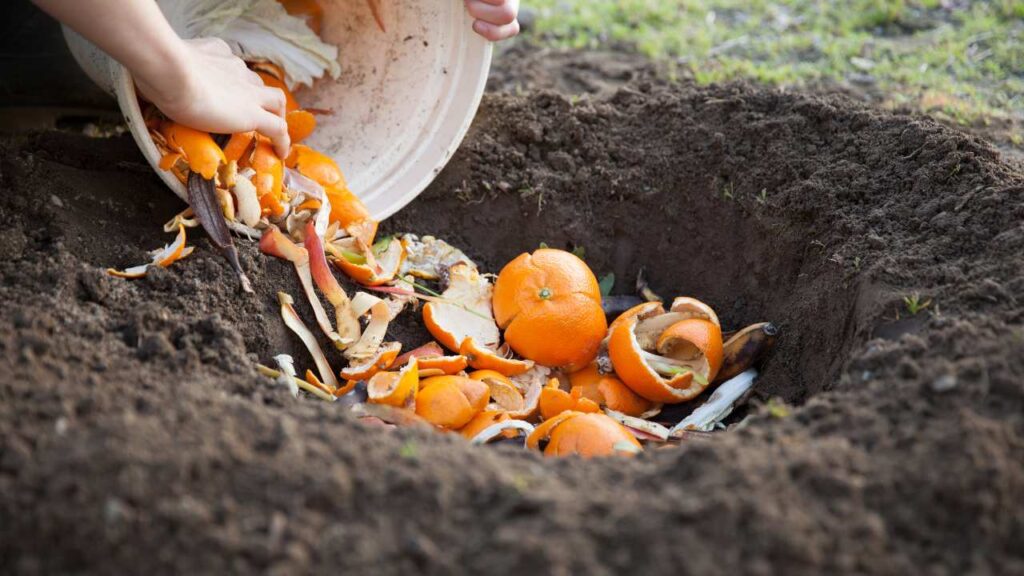
Frequently Asked Questions For Can You Compost Man Made Junk Food?
Can You Compost Junk Food?
Yes, you can compost junk food, but do so sparingly due to high salt content and artificial additives that may hinder the composting process and attract pests.
What Are 3 Things You Shouldn’t Compost?
Three items to exclude from your compost bin are meat scraps, dairy products, and synthetic chemicals, as these can attract pests and disrupt the composting process.
What Food Waste Can Not Be Composted?
Avoid composting meat, dairy, oils, and cooked food, as they attract pests and cause bad odors.
Diseased plants and biodegradable plastics should also be excluded from compost to prevent contamination and slow decomposition.
Can Processed Foods Be Used In Compost?
Processed foods can be composted, but it’s best to limit their use as they may attract pests and can contain high salt content that might be harmful to the composting process.
Stick to fruit and vegetable scraps for best results.
Conclusion
Composting transforms organic waste into rich soil, but man-made junk food often hinders this process.
As we’ve explored, these items can disrupt the natural decay due to unnatural ingredients.
Embrace organic scraps and leave the junk food out of your compost bin for a healthier, more effective system.
Remember, composting is about going back to Earth’s roots—keep it natural.

